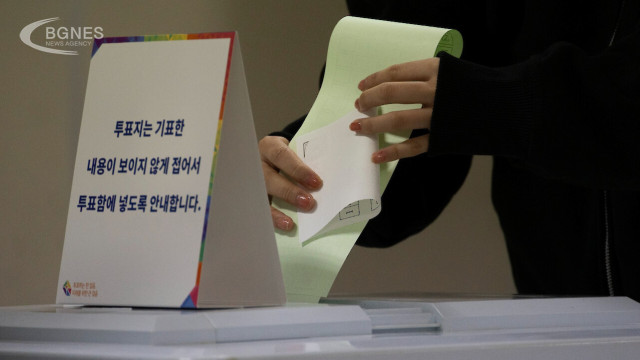All eyes are on South Korean voters heading to the polls for key parliamentary elections. The vote could change President Yoon Suk-yeol's domestic and foreign policies just two years into his term.
The vote on April 10, 2024 for all 300 seats in the National Assembly assumes extreme importance as a referendum on Yun and his conservative administration. Currently, Yun's People's Power Party (PPP) and its satellite party have only 114 seats, trailing the progressive Democratic Party of Korea (DPK) and its satellite party, which control 156 seats.
Opinion polls show the race is highly contested. These elections traditionally serve as a barometer of public satisfaction with the president's performance midway through his only five-year term. For example, in the 2020 election, former President Moon Jae-in had a 59% approval rating and his DPK secured 60% of the seats in the National Assembly.
Income issues, such as the declining economy and rising costs of living, are expected to be decisive for many voters. A survey by national broadcaster KBS showed that 73 percent of voters considered housing costs and inflation to be crucial factors in deciding to vote. Other issues include controversy over applicants, a plan to increase medical school places and the controversial appointment of a new ambassador to Australia.
The DPK has criticized Yun for his economic policies, record low birth rates and scandals surrounding First Lady Kim Geun-hye. Yun's PNW countered this by arguing that the DPK's legislative control had failed society, highlighting the legal problems associated with opposition leadership in the so-called "Court of the Opposition Theory". They also called for a generational change with the "corrupted generation 586".
Yoon toured the country holding 23 town hall meetings in cities across South Korea to outline local initiatives such as new infrastructure, housing and education reforms. This move helped temporarily raise his rating to 40%. But that approval rating may decline after the introduction of temporary economic relief measures that critics dismissed as populist and unrealistic. These controversial measures include spending to curb food inflation by subsidizing imports.
While domestic debates have dominated the campaign, the geopolitical stakes are high. This is particularly true of South Korea's revived security and economic cooperation with the US and Japan, which has expanded under Yun. During his tenure, Seoul formalized trilateral initiatives in areas such as defense, supply chains, humanitarian aid and cutting-edge technology. These efforts culminated in the historic Camp David summit in August 2023, which realigned the three allies against the threats posed by a nuclear-armed North Korea and China's expansionism.
But Yun's policies, such as compensating the victims of World War II forced labor with public funds and passively accepting the release of treated radioactive waste water from Japan's Fukushima nuclear power plant, have sparked a domestic backlash. This allowed the DPK to portray the Yun administration as overly "pro-Japanese" - a traditionally strong political attack on conservatives.
Analysts warn that future policy changes could undermine Yun's diplomatic efforts to align policies with allies to counter Pyongyang and Beijing. DPK leader and former presidential candidate Lee Jae-myung criticized the Yun government for exacerbating tensions with China and supporting Ukraine in its war with Russia. He argued that such actions hurt South Korea by affecting trade and ties between Russia and North Korea. Neutrality is in direct conflict with South Korea's current approach of positioning itself as a "global state with a key role."
A landslide victory for Yun's PNP could show that cooperation between the US, South Korea and Japan has significant domestic political support while also signaling a setback for North Korea and China's efforts to chip away at Seoul's support. Still, a decisive pushback could erode domestic support for Yoon's signature diplomatic campaigns, forcing Washington to invest more in diplomacy to bolster alliance priorities in South Korea's turbulent party landscape.
The overwhelming popularity of the US-South Korea alliance suggests that a progressive opposition victory in the 2027 general and presidential elections may not lead to a deterioration in bilateral relations. But doubts about continuing trilateral cooperation with Japan, about which public sentiment in South Korea remains reserved, are likely to intensify.
If the DPK gains a legislative majority, Washington and Tokyo may have to adjust by adopting politically isolated models of cooperation with Seoul to withstand possible future government changes. This could mean doubling the coordination at the working level, regulating the inter-party legislative dialogues. It can also include enhanced private sector involvement, particularly in strategically important industries considered key to ensuring sustainable supply chains and cutting-edge innovation.
The use of bilateral and trilateral legislative dialogues between the National Assembly of South Korea, the US Congress, and the National Parliament of Japan, which are relatively insulated from changes in administration, can help cement the cooperation achieved. Such institutionalized cooperation can help to maintain and deepen the tripartite partnership in case of possible changes in the leadership./BGNES
-------------------------------------------------- ---
Jinwan Park, East Asia Forum







